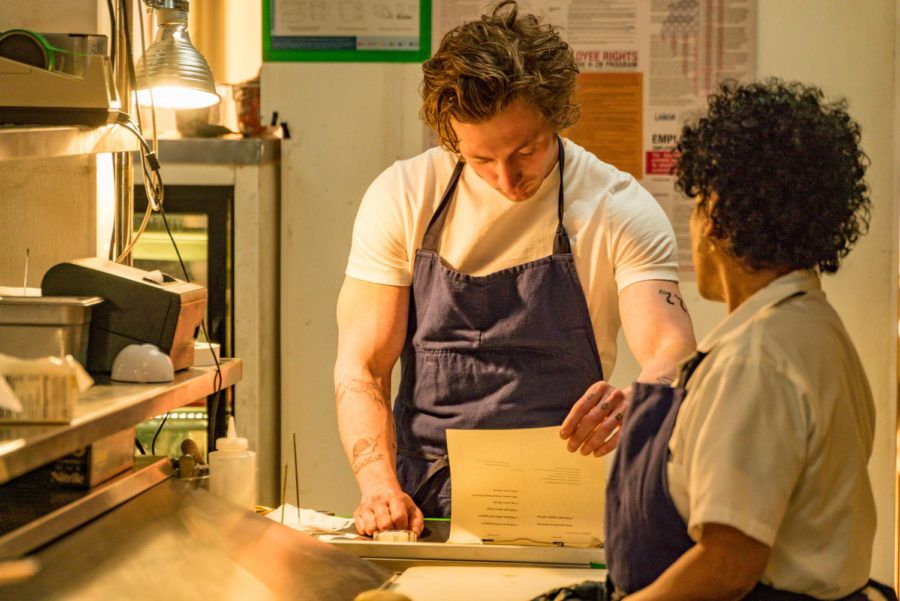The suffocation of a chaotic kitchen: ‘The Bear’ series
Liza Colón-Zayas and Jeremy Allen White in The Bear (2022). Photo courtesy of Matt Dinerstein | FX Networks
December 5, 2022
Injured people in the same room. Yelling and fire. Tension and fear of the unknown. The new series released on Star+, “The Bear,” exhibits for me one of the most faithful representations of grieving.
The plot is based on the life of Carmen – a young, talented chef who spent most of his life in the world of haute cuisine. His world, once clean and calculated – each seasoning in its proper amount and meticulously well-chosen dishes, everything transparent.
However, this apparently balanced life starts to plunge into complete chaos after the death of his brother Michael, who until then managed a tiny diner in Chicago. The eight-episode series, directed by the brilliant mind of Christopher Storer, illustrates for the viewer a scenario of suffocation.
After Michael’s death, the scenes are limited to the tiny diner kitchen where Carmen starts to work.
To represent the grieving mind, the scene changes from clean to dirty. From meticulously calculated, to complete chaos. All the cooks at that diner grieve the loss of Michael. Everyone is suffocated by their own pain, and the tightness and discomfort that the kitchen represents is another sign of this agony.
This series is for those who want to board a sinking ship. On a boat where all passengers no longer look at the sea with affection, but with fear and terror. A boat adrift – this is perhaps the best description of the soul and mind of all those in mourning.
Mourning: that word came into my head from the beginning to the end of “The Bear.” The series made me understand that being in mourning is not limited to the moment we lose a loved one. Grief manifests itself in the banalest type of daily change.
The simple insertion of a new figure (Chef Carmen) within the dynamic and irregular kitchen of the diner is a symbol of mourning. They mourn because all the old systematization of the kitchen has been annihilated, forgotten and removed.
This artistic production doesn’t depend on well-structured dialogue to bring the series to life. With the disorderly and chaotic performance of the camera movements, it is possible to interpret a moment of extreme tension, as well as the panic attacks of the boss and everyone around him, without expressing a single word.
If you’re going through a time of conflict or anxiety, take a deep breath before watching. Know that the world you are about to face is a world of extreme vulnerability among those after successive moments of loss and changes in reality.
While “The Bear” can be a great trigger for those experiencing anxiety, it can also serve as an excellent human identification when it comes to the constant financial pressures of the naturally wild and competitive world we live in.
The series shows the gray scenario the chef goes through when he notices that debts only increase and there is no immediate solution to this problem. In the seventh episode, Carmen freaks out. He gets out of control. Everything seems to be in an ugly, disorderly dance. That tiny kitchen seems to squeeze him out because of the vivid pressure around him.
Mourning. Pressure. Screams. Those are the words that run through my mind when I try to describe one of the most humanistic series of this year, “The Bear.”




















































































































































